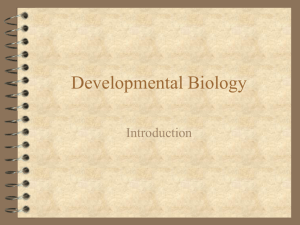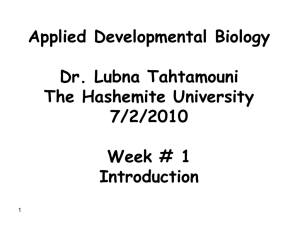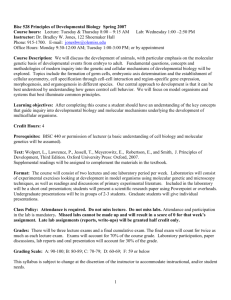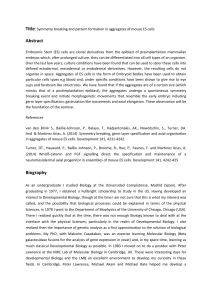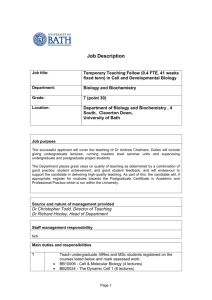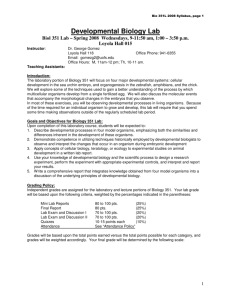Developmental biology studies the fundamental question of how
advertisement
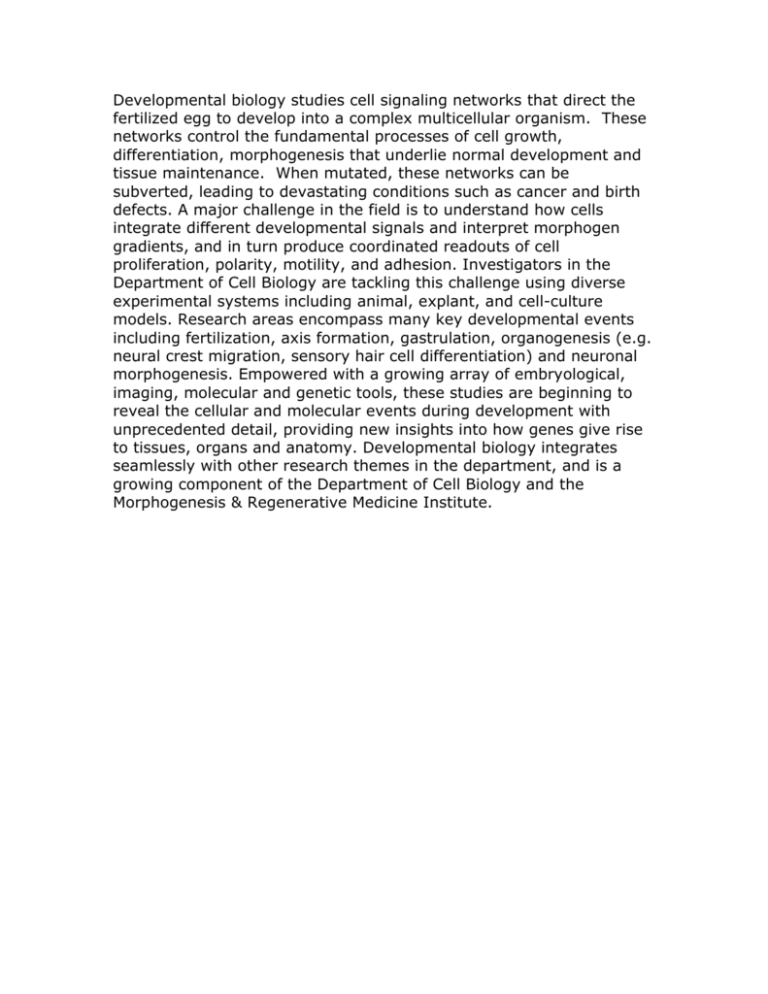
Developmental biology studies cell signaling networks that direct the fertilized egg to develop into a complex multicellular organism. These networks control the fundamental processes of cell growth, differentiation, morphogenesis that underlie normal development and tissue maintenance. When mutated, these networks can be subverted, leading to devastating conditions such as cancer and birth defects. A major challenge in the field is to understand how cells integrate different developmental signals and interpret morphogen gradients, and in turn produce coordinated readouts of cell proliferation, polarity, motility, and adhesion. Investigators in the Department of Cell Biology are tackling this challenge using diverse experimental systems including animal, explant, and cell-culture models. Research areas encompass many key developmental events including fertilization, axis formation, gastrulation, organogenesis (e.g. neural crest migration, sensory hair cell differentiation) and neuronal morphogenesis. Empowered with a growing array of embryological, imaging, molecular and genetic tools, these studies are beginning to reveal the cellular and molecular events during development with unprecedented detail, providing new insights into how genes give rise to tissues, organs and anatomy. Developmental biology integrates seamlessly with other research themes in the department, and is a growing component of the Department of Cell Biology and the Morphogenesis & Regenerative Medicine Institute.
